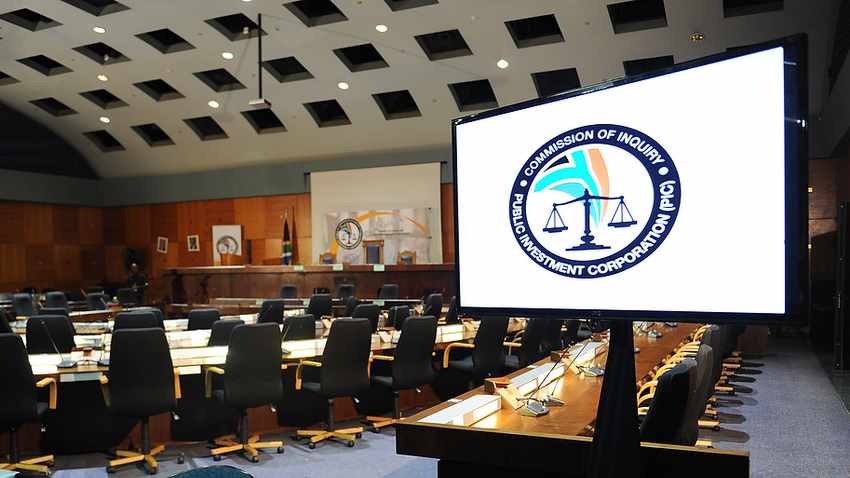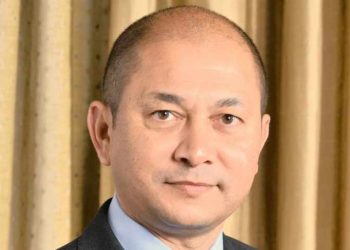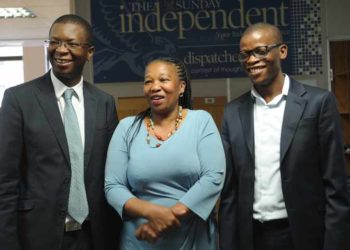Cape Town – Human beings are all incredibly different from each other, so much so that tolerance of one another is not just something that is a good thing to do, it’s an essential practice in order to be.
As French American microbiologist and winner of the Pulitzer Prize for General Non-Fiction for his book, So Human An Animal, René Dubos aptly puts it: “Human diversity makes tolerance more than a virtue, it makes it a requirement for survival.”
Interestingly, the same can be said of the requirement for tolerance across South Africa’s media industry, where it is desperately needed.
While diversity in news coverage and views are key to keeping audiences informed, as well as holding those in power accountable, much of mainstream media appear to have elected to eschew this school of thought.
All media need to develop some tolerance of the fact that there are always different sides to a story.
For some, it is not even about permitting the existence of ‘voice variety’ within South Africa’s culturally diverse melting pot. Instead, throwing the ability to be unbiased, rational and objective out of the window, many have chosen to pursue a single and singular, narrative.
A case in point is the recent announcement regarding the departure of four board members at the Public Investment Corporation (PIC). Somehow, apparently, only best known to him, Business Day’s Warren Thompson, figured this turn of events could have something to do with investee companies. Or to be more specific, one investee company in particular, AYO Technology Solutions (AYO).
Thompson appears to be single-minded in his dedication and narrow approach to covering PIC related matters of late.
Perhaps even a morbid obsession has developed for all things AYO and Sekunjalo-related companies, as he seems hell-bent on conflating companies and issues and linking completely unconnected and unrelated events to AYO and co, to continue, that which even a fifth-grader could determine, as his column inch persecution. It is, most curious.
It is a matter of public knowledge that the PIC board was appointed in July 2019 on an interim basis. This was for a period of 12 months, which ended in July 2020. At the end of the term, Finance Minister Tito Mboweni, as a shareholder representative, extended this term by 15 months.
The PIC confirmed on Thursday that at that point, some board members – Irene Charnley, Sindi Mabaso-Koyana, Maria Ramos and Bhekithemba Gamedze – indicated that they would not be serving on the board for the full duration of that 15 months.
But, according to the crystal ball that Business Day’s oracle Thompson consults, their stepping down has to do “with criticism mounting that the PIC is not doing enough to recover money it says it is owed from the likes of AYO Technology Solutions”.
The PIC has written off billions in various investments including Business Day’s former proprietor, Tiso Blackstar, yet out of all the companies mentioned at the PIC Commission of Inquiry, the asset manager has still only been seen to act against Sekunjalo-related companies. Highly publicised too.
Thompson is sadly not alone in his tyranny of AYO, or of the one-sided reporting on matters PIC – the overwhelming majority of articles regarding the state’s asset manager, seem unable to help themselves from mentioning AYO or Dr Iqbal Survé – it’s like an addiction. Perhaps, something a little more sinister too – a concerted propaganda manoeuvre perhaps?
Yet, the PIC needs to be wary of being seen to be taking sides. Well-placed sources within the PIC have alluded to a game-plan that runs a propaganda campaign alongside a legal campaign against Sekunjalo-related companies. Whether this is true or not, and what will come of it, remains to be tested. However, we are watching …
The PIC confirmed that the departure of these board members was expected, as they had made it known at the time when their term was extended. The shareholder has since appointed Futhi Mtoba and Karabo Morule to the PIC interim board.
“The board quorate … continues to execute its functions competently and diligently, including implementing the recommendations of the Mpati Commission of Inquiry,” the PIC said in a statement.
The PIC also said that the members’ departure was for personal reasons and not a reflection on the asset manager. That is a reassuring statement for pensioners, whose hard-earned money the PIC invests, on behalf of the Government Employees Pension Fund (GEPF).
That aside, there remains a query over whether the interim board, may have been conflicted in their duties, given the board was tasked to focus its attention on primarily black-owned companies and the deals done between the PIC and these.
Meanwhile, the PIC has lost an estimated R30 billion through the Steinhoff debacle and millions of rand on Tongaat Hulett, yet the majority of the media reporting, for whom tolerance is only a word in a dictionary, continue to focus the majority of their efforts on just one organisation, who, let’s face it, has actually managed to grow its Net Asset Value and provide a dividend to its shareholders as a result …
I wonder why?
Just some food for thought.
* Sizwe Dlamini is Special Investigations Unit Editor for Independent Media
BUSINESS REPORT


















